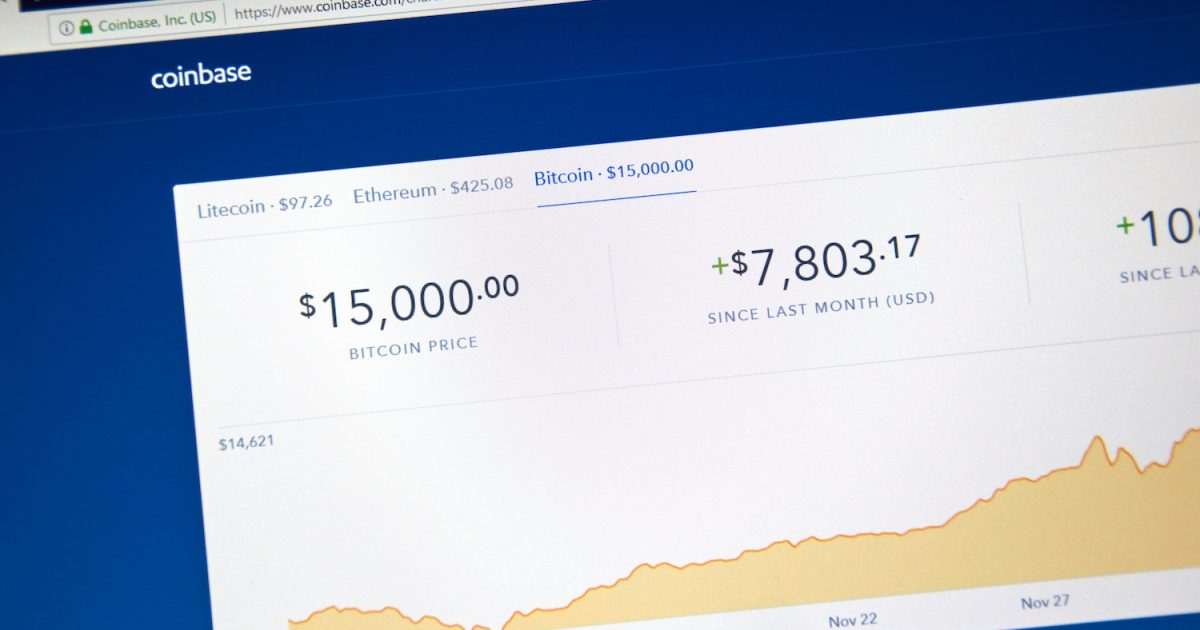Coinbase is said to be preparing to go public, CENTRE blasklisted a decentralized address and U.S. sanctions on China could trickle down to crypto brokerages. Here’s the story:
You’re reading Blockchain Bites, the daily roundup of the most pivotal stories in blockchain and crypto news, and why they’re significant. You can subscribe to this and all of CryptoX’s newsletters here.
Top shelf
Coinbase Listing?
Coinbase is reportedly preparing to list on the U.S. stock market sometime in early 2021, according to a Reuters report. Sources said the exchange has already begun the process for a listing. Rather than an initial public offering, it’s said the firm would prefer to go down the route of a direct listing on an exchange. The company was valued at $8 billion at its last funding round in 2018.
CENTRElized?
The CENTRE Consortium blacklisted a USDC address in response to a law enforcement request, freezing $100,000 worth of the stablecoin, a spokesperson said Wednesday. “When an address is blacklisted, it can no longer receive USDC and all of the USDC controlled by that address is blocked and cannot be transferred on-chain,” according to a policy document shared with CryptoX. The incident underscores the limits of decentralization when regulated businesses interact with permissionless networks.
Brazil’s Boom
Brazil is experiencing a token boom, driven by interest in stablecoins. The number of Brazilian stablecoins traders has quadrupled since January 2020, according to a Binance representative. Other exchanges report a similar trend. Rather than spawning a Bitcoin Utopia, so far the cryptocurrency trend has further aligned Brazil with the U.S. dollar, in part due to the faltering Brazilian real, which hit a record low against the dollar in May 2020. “We have a trend of dollarization,” Nash exchange co-founder Fabio Canesin said, “so of course having stablecoin access is interesting for … access to smart contracts for more stable savings.”
Sanctions
U.S. sanctions in response to Hong Kong’s national security law – and Beijing’s tighter grip over the city’s financial system – could pose challenges for local crypto brokerage firms. The U.S. Senate passed the Hong Kong Autonomy Act on Thursday that could, if enacted, restrict foreign banks and subsidiaries of U.S. banks in Hong Kong from accessing the U.S. dollar system. This could take a toll on cryptocurrency companies in Hong Kong, which are highly dependent on the U.S. dollar system to settle and clear transactions. “The most successful cryptocurrency companies here are dependent on their access to the U.S. dollar system,” said Leo Weese, the president and co-founder of the Bitcoin Association of Hong Kong.
Movers & Shakers
HOPR, a decentralized alternative to Tor, closed a $1 million seed round led by Binance Labs with participation from Focus Labs, Spark Digital Capital, Caballeros Capital and Synaitken. While Avanti, the Wyoming-based crypto-first bank, has brought on internet cryptography pioneer Christopher Allen, former Federal Reserve official Katie Cox, and blockchain architect Bob McElrath as advisers. (Adriana Hamacher/Decrypt) Lastly, Ceres, a “seed to sale” transaction network for cannabis, has filed paperwork with the SEC to conduct a Reg. A sale, seeking permission to sell both a token and a coin. According to the application, the firm plans to sell up to $30 million worth of its tokens, which would represent an equity holding, and $20 million in Ceres coins, which would serve as a transaction tool in its payments network.
Scams
Chinese police have seized over $15 million in bitcoin, ether and tether as well as supercars worth $2 million from the alleged operators of a novel scam that sold counterfeit tokens. China’s Ministry of Public Security said Wenzhou police arrested 10 individuals suspected of advertising a blockchain smart contract that claimed to generate Huobi Tokens (HT), Huobi exchange’s own crypto, that promised returns of 8%, one victim said.
Quick bites
- Libra still plans to issue its multi-asset backed stablecoin, according to Libra Director of Policy Julien Le Goc, speaking at the Global Digital Finance virtual summit.
- Only 23% of hodlers have an estate plan to bequeath their digital wealth, according to the Cremation Institute’s online survey.
- The Children’s Heart Unit Fund received nearly $48,000 in donations made using cryptocurrency.
- The CFTC will develop a “holistic framework” for crypto assets by 2024. (Yogita Khatri/The Block)
- The London Stock Exchange Group (LSEG) added 169 digital assets to its SEDOL Masterfile service, a global database used to tag and track securities and other investable assets.
Market intel
Multi-year lows
While bitcoin has gained 3% so far this week, the overall trading environment remains dull with volatility hovering at multi-year lows. Ten-day realized volatility is now at 20%, the lowest level for two years, “only preceded in Sep & Oct 2018,” QCP Capital said. Back in the autumn of 2018, the low-volatility consolidation ended with a big drop to below $6,000. This time, though, options traders are anticipating a breakout on the higher side.
Transaction Revenues
In June, Ethereum miners generated approximately 17% of their total revenue from the transaction fees, The Block has found. This all-time high represents a jump from 10% of revenues earned from transaction fees in May. The researchers attribute the increase to several Ethereum Ponzi schemes and the growing interest in yield farming. (The Block)
The CryptoX 20: The Assets That Matter Most to the Market
Digital assets aren’t what they used to be. As more people learn the fundamentals and grasp the potential for high returns, cryptocurrencies are emerging as a new asset category.
Introducing the CryptoX 20, our list of the 20 digital assets that impact and define the market. From our new dashboard, uncover insights through price pages, key metrics, news and industry analysis, as well as video interviews with founders and key developers of the underlying technology. Dive into our freshly revamped practical guide to the assets that matter most to the market.
Opinion
What DeFi Can Learn From ‘InFi’
Leah Callon-Butler, CryptoX columnist and director of Emfarsis, thinks informal economies, like those that exist in Southeast Asia as a means of creating local financial resilience, are DeFi’s precedent. “The developing world has produced a wealth of community-based systems that rely on shared values to achieve economic empowerment on their own terms. By studying these informal systems of cooperation, we may uncover opportunities for blockchain to improve on existing practices or help to scale positive impact,” she writes.
Podcast
Who Let the Doge Out?
The latest episode of The Breakdown looks at the most 2020 financial story to date: the meteoric rise of dogecoin spurred by TikTok videos.
Who won #CryptoTwitter?
The leader in blockchain news, CryptoX is a media outlet that strives for the highest journalistic standards and abides by a strict set of editorial policies. CryptoX is an independent operating subsidiary of Digital Currency Group, which invests in cryptocurrencies and blockchain startups.





